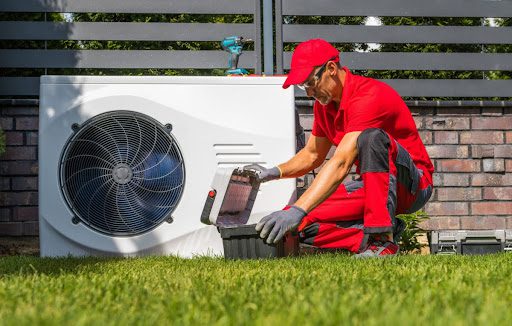
Understanding Heat Pumps and Furnaces
Installing a new heating system in your home is a major investment — one that will impact your comfort and energy costs for years to come. When deciding between a heat pump or furnace, several factors should be considered, each playing a crucial role in determining the best fit for your specific needs. However, it’s first important to understand how a furnace operates and how a heat pump works.
What Is a Heat Pump?
A heat pump is a versatile heating and cooling system that uses the principle of heat transfer. It moves warm air from one place to another, depending on the season. During colder months, a heat pump extracts heat energy from the outdoor air or ground (in the case of geothermal heat pumps) and transfers it indoors. This process is reversed in warmer months to cool your home. Heat pumps are known for their energy efficiency and can operate using electricity or gas (in a dual fuel system).
What Is a Furnace?
Furnaces, on the other hand, generate heat internally. Gas furnaces use natural gas to create heat in a combustion chamber, which is then distributed throughout your home. Electric furnaces use electric heating elements to produce heat. Unlike heat pumps, furnaces are solely for heating and require a separate system for cooling. They are particularly effective in cold climates where temperatures drop significantly.
Energy Efficiency
When it comes to energy efficiency, heat pumps generally have an edge. They simply move existing heat rather than generating their own, which often requires less energy. Air source heat pumps, in particular, are known for their energy-efficient performance in moderate climates. Furnaces, especially modern high-efficiency models, can also be energy efficient but may consume more energy due to their heat generation process.
Performance in Cold Climates
The performance of a heat pump vs. furnace system varies significantly with the climate. Heat pumps are less efficient in extremely cold temperatures, as they need to work harder to extract heat from the cold air. Gas furnaces, however, are unaffected by outside temperatures and can provide consistent heating even in the coldest weather.
Installation Complexity
The complexity of installing a heat pump or furnace depends on your existing system. Heat pumps might require more extensive installation if your home doesn’t have the necessary ductwork. For homes with existing natural gas lines, installing a gas furnace can be more straightforward. However, electric furnaces require less complex installation processes since they don’t need gas lines.
Maintenance Requirements
Both systems require regular maintenance, but the complexity differs. Heat pumps have fewer moving parts compared to gas furnaces, potentially leading to lower maintenance requirements. However, since heat pumps are used year-round for both heating and cooling, they may experience more wear and tear. Gas furnaces, while having more complex components, are only used seasonally, which could mean less overall maintenance.
Upfront Costs
The upfront cost of a heat pump system can be higher than that of a furnace, especially if your home requires additional modifications like ductwork. However, the long-term energy savings provided by a heat pump can offset these initial expenses.
Longevity and Operating Costs
Heat pumps typically have a shorter lifespan than furnaces due to their dual-function use throughout the year. However, the lower operating costs and energy efficiency can balance out the expense over time. Furnaces, while potentially having a longer lifespan, might lead to higher energy bills, especially in regions where natural gas prices are high.
Choosing the Right System for Your Home
Your local climate is a crucial factor in choosing a heat pump vs. furnace system. If you live in a moderate climate, a heat pump could be an efficient and cost-effective option. For those in areas with harsh winters, a furnace, particularly a gas furnace, can be suitable.
Assessing Your Home’s Needs
Consider the size of your home, existing infrastructure (like ductwork and gas lines), and your personal preferences for comfort and convenience. Consulting with a professional can provide tailored advice based on these factors.
Schedule Your Heating System Installation Today!
Making the right choice between a heat pump vs. furnace is crucial for your comfort and energy bills. Whether you’re considering installing a new heat pump or switching to a heat pump in Texas, Adon Complete Air Conditioning & Heating is happy to discuss your options with you. We offer a wide range of heating solutions, including heat pumps, gas furnaces, and electric furnaces.
Don’t hesitate to schedule an appointment with our McKinney heating experts. We can assess your home’s heating needs and find the best solution tailored for you. Our team of experts is ready to assist you in making the best decision for your home’s heating system. Contact us today!
5 Furnace Noises and What They Mean » « How Often Should You Get a Furnace Tune-Up?






